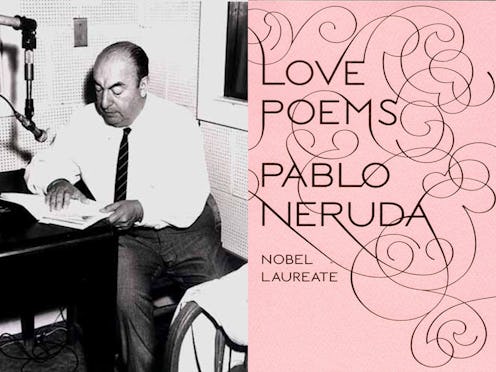Two years after the Chilean government admitted that Pablo Neruda may have been assassinated by Augusto Pinochet's regime, a probe has uncovered evidence to suggest that the country's Nobel Prize-winning poet did not die of prostate cancer, as his death certificate claims. Was Pablo Neruda assassinated? The evidence is currently inconclusive, but it seems that the official records of his death were not 100 percent accurate, in any case.
Born Ricardo Eliecer Neftalí Reyes Basoalto in 1904, the poet adopted his pseudonym with the self-publication of his first poetry volume, Crepusculario, in 1923. According to the Academy of American Poets, Neruda changed his name "to avoid conflict with his family, who disapproved of his occupation."
During his life, Neruda supported the communist policies of Chilean President Salvador Allende. When a U.S.-backed military coup overthrew Allende and installed Pinochet in his stead, Neruda planned to leave the country for Mexico, where "he had been offered asylum," according to The Guardian. He died 12 days after the coup, on Sep. 23, 1973, the day before he intended to leave the country.
For 40 years, the official story attributed Neruda's death to prostate cancer, but his driver, Manuel Arraya, believes foul play was at hand. Arraya says that Neruda asked him to go to the hospital after claiming that he had been injected in the stomach by Pinochet's secret service. Neruda did indeed have prostate cancer before his death, but it was not advanced enough to kill him, investigators say.
The Chilean government exhumed Neruda's remains in 2013, in an effort to put rumors surrounding the poet's death to rest. The move generated some controversy among some of Neruda's most ardent supporters, including his nephew, Bernardo Reyes, who says that government officials never contacted his family regarding the exhumation, and called the entire affair "a circus that I do not want to be part of" in a statement to CNN Chile.
Revelations about Neruda's death are not the only reason he has made headlines lately. Earlier this year, an all-new volume of Neruda's poetry, titled Then Come Back: The Lost Neruda Poems, hit store shelves in the U.K. The collection features 21 previously unpublished poems, including completed works and fragments, that Neruda researchers "found scribbled on the backs of menus, in the margins of books, and on the edges of napkins." Then Come Back contains side-by-side versions of the poems in Spanish and English, as well as snapshots of them as they were written by Neruda.
